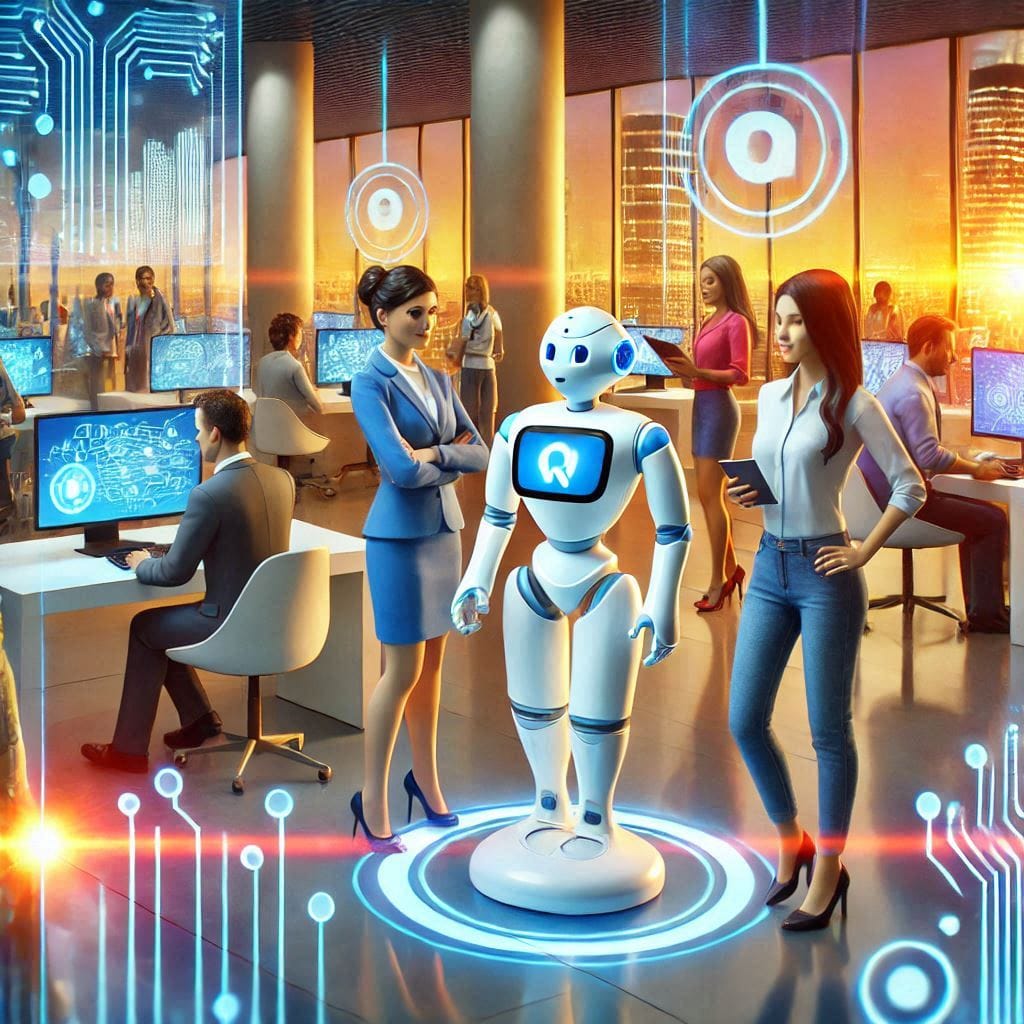
AI Chatbots: The Future of Customer Service is Here
In today’s fast-paced digital world, customers expect instant gratification. They want answers to their questions, solutions to their problems, and assistance with their purchases – all without delay. Enter the AI chatbot, a powerful tool revolutionizing customer service and transforming how businesses interact with their clientele.
AI chatbots are intelligent virtual assistants that can engage in conversations with customers, providing information, answering questions, and even completing tasks. They offer a compelling blend of efficiency, cost-effectiveness, and 24/7 availability, making them an increasingly popular solution for businesses of all sizes.
The Power of AI Chatbots: Key Features and Benefits
AI chatbots offer a range of advantages that make them a game-changer for customer service:
- 24/7 Availability: AI chatbots are always on, providing round-the-clock support to customers across different time zones and ensuring that no query goes unanswered, even outside of business hours.
- Cost-Effectiveness: By automating routine tasks and inquiries, chatbots reduce the need for large customer support teams, leading to significant cost savings in salaries, training, and infrastructure.
- Scalability: Chatbots can handle a large volume of conversations simultaneously, making them ideal for businesses experiencing rapid growth or seasonal fluctuations in customer interactions.
- Consistency: Chatbots deliver standardized responses based on pre-programmed knowledge, ensuring consistent information and service quality across all interactions.
- Efficiency: Chatbots provide instant responses to frequently asked questions, freeing up human agents to focus on more complex issues and personalized customer support.
- Reduced Human Error: Automation minimizes the risk of errors that can occur with manual, repetitive tasks, ensuring accuracy and improving data quality.
- Improved Customer Experience: Customers receive immediate assistance and information, leading to increased satisfaction and loyalty.
Types of AI Chatbots
AI chatbots come in different forms to cater to various needs and communication channels:
- Text-based Chatbots: These are commonly found on websites, messaging apps (like WhatsApp and Facebook Messenger), and SMS. They excel at answering FAQs, providing product information, and guiding customers through online processes.
- Voice-based Chatbots: These act as virtual receptionists, answering phone calls, routing calls to the appropriate departments, and providing support through voice interactions.

Use Cases for AI Chatbots
The versatility of AI chatbots makes them applicable across a wide range of business functions:
- Customer Support: Chatbots can handle common customer queries, provide troubleshooting assistance, and guide customers towards self-service solutions.
- Lead Qualification: Chatbots can engage potential customers in conversations, qualify leads based on pre-defined criteria, and gather valuable customer data.
- Appointment Booking: Chatbots can automate appointment scheduling, allowing customers to book appointments at their convenience and reducing scheduling conflicts.
- Order Management: For e-commerce businesses, chatbots can provide order updates, track shipments, and even process returns, improving the overall shopping experience.
- Internal Support: Chatbots can be deployed within organizations to assist employees with accessing company policies, finding internal documents, and navigating internal processes.
Building and Implementing Chatbots
Creating and deploying AI chatbots is becoming increasingly accessible, thanks to a variety of tools and platforms:
- No-Code Platforms: Numerous platforms allow users to build sophisticated chatbots without writing a single line of code. These platforms offer user-friendly interfaces and drag-and-drop functionalities, making chatbot development accessible to everyone.
- Customization: Chatbots can be customized to reflect a brand’s voice and personality, ensuring consistency with brand identity and creating a more engaging customer experience.
- Integration: Integrating chatbots with existing business systems like CRM platforms and knowledge bases enhances their functionality and allows for seamless data flow.
- Specialized Platforms: Platforms like Streamline Connector facilitate integration between specific platforms, such as connecting Shopify stores with Voiceflow, enabling real-time data synchronization and advanced e-commerce functionalities.
- Chatbot Builders: Platforms like Voiceflow provide visual interfaces and intuitive tools for designing and programming chatbot conversations, making it easier to create complex chatbot interactions.
- Knowledge Bases: Connecting chatbots to knowledge bases allows them to access and retrieve relevant information to answer customer queries accurately and comprehensively.
Examples of AI Chatbot Solutions
AI chatbots are being used in innovative ways across various industries:
- AI Receptionist: Virtual receptionists can handle incoming calls, answer frequently asked questions, and even book appointments, providing 24/7 service and freeing up human receptionists for other tasks.
- AI Virtual Assistant: These assistants can automate customer support tasks like handling maintenance requests, updating tickets, and providing personalized assistance.
- AI Market Research Assistants: These bots can gather valuable market insights by engaging with target audiences and collecting feedback on products or services.
- E-commerce Chatbots: Chatbots integrated with e-commerce platforms can provide real-time support, offer product recommendations, and guide customers through the purchasing process.
Considerations for Implementation
While AI chatbots offer significant benefits, businesses should consider the following factors for successful implementation:
- “Good Enough” vs. Perfect: AI chatbots may not be able to handle every customer interaction perfectly. The goal is to find the right balance between automation and human intervention, ensuring that complex or sensitive issues are escalated to human agents when needed.
- Human Escalation: It’s essential to provide a seamless transition to human support for situations that require personalized attention or complex problem-solving.
- Data Privacy: Businesses must prioritize data privacy and security when deploying AI chatbots, ensuring compliance with relevant regulations and protecting customer information.
Conclusion
AI chatbots are transforming the landscape of customer service, offering businesses a powerful tool to enhance customer experience, streamline operations, and improve efficiency. As AI technology continues to advance, chatbots are poised to become an even more integral part of business operations, driving customer satisfaction and business growth in the digital age.

